
If you live outside of the British Isles and are thinking of taking a trip to Scotland to soak up the landscapes, ancient castles or to do some ancestral research in the archives and perhaps visit the area where your family are from, but you don’t want to spend too much money doing it, then here are some suggestions.
With the uncertainty over Brexit in the UK, the value of the pound has fallen significantly against most other currencies, making it a perfect time to visit Scotland. Here are some tips to keep those expenses down further:
Tip 1; Avoid package tours and travel off season
Avoid a package tour. It will be much cheaper to plan and book the trip yourself and you will likely get more out of it by visiting the places that mean more to you and your family. Also, travelling off season in Spring or Fall will be cheaper than during the summer.
Tip 2; Try to fly direct to Scotland
Try to avoid flying into London, unless you are also spending time in England. It’s at least an 8 hour drive to Edinburgh and the train or plane is expensive. If you can fly directly to Glasgow or Edinburgh it will save you money as well as time.
Tip 3; Go self catering
Go self catering. Renting a cottage for a week works out much cheaper than staying in a hotel and dining out every night. There are some stunning and very comfortable properties that can be rented. On our last trip to Scotland, we rented a lovely 2 bedroom apartment in a grand Victorian house with a company called Unique Cottages . There are also other companies that you can use.
Tip 4; Don’t stay in Edinburgh
Stay outside of Edinburgh; Scotland’s capital city is the most expensive area in the Country, so it makes sense to stay somewhere else. I recommend Stirling as it is centrally located and within an hour of both Edinburgh and Glasgow by car and train. Stirling is also within easy reach of Loch Lomond and the Highlands. See my post about Stirling for more information.
Tip 5; Consider travel options before your trip
Trains in Scotland are good, but expensive, especially if you buy tickets on the day of travel at the station. If you are planning to visit different parts of Scotland on your trip and you are a non-UK resident, you should consider getting a BritRail Spirit of Scotland Pass. These tickets will give you unlimited travel on ScotRail trains and some coaches and, depending on how much travel you do, should work out cheaper than buying individual tickets. More information can be found here.
If you don’t buy a BritRail pass, but still plan to use the train for some journeys, then it is usually cheaper to buy tickets online in advance (even the day before) than on the day of travel at the railway station. Online tickets can be bought from the Scotrail site or retailers such as Trainline. Scotrail is the company that operates most trains in Scotland.
Renting a car can be a cost effective option, especially if your hire an economy vehicle. Main roads are good and if you’re not used to driving on the left, you’ll soon get used to it.
And by the way, if you are visiting Edinburgh; avoid parking in the city centre. If you come in from the North, use the free park and ride parking lot and take the Tram into the city centre. There are five free park and ride sites surrounding Edinburgh. More information can be found here.
Other large cities, like Glasgow also have park and ride systems using buses.
Have a great trip!
Please pin a pin to Pinterest:

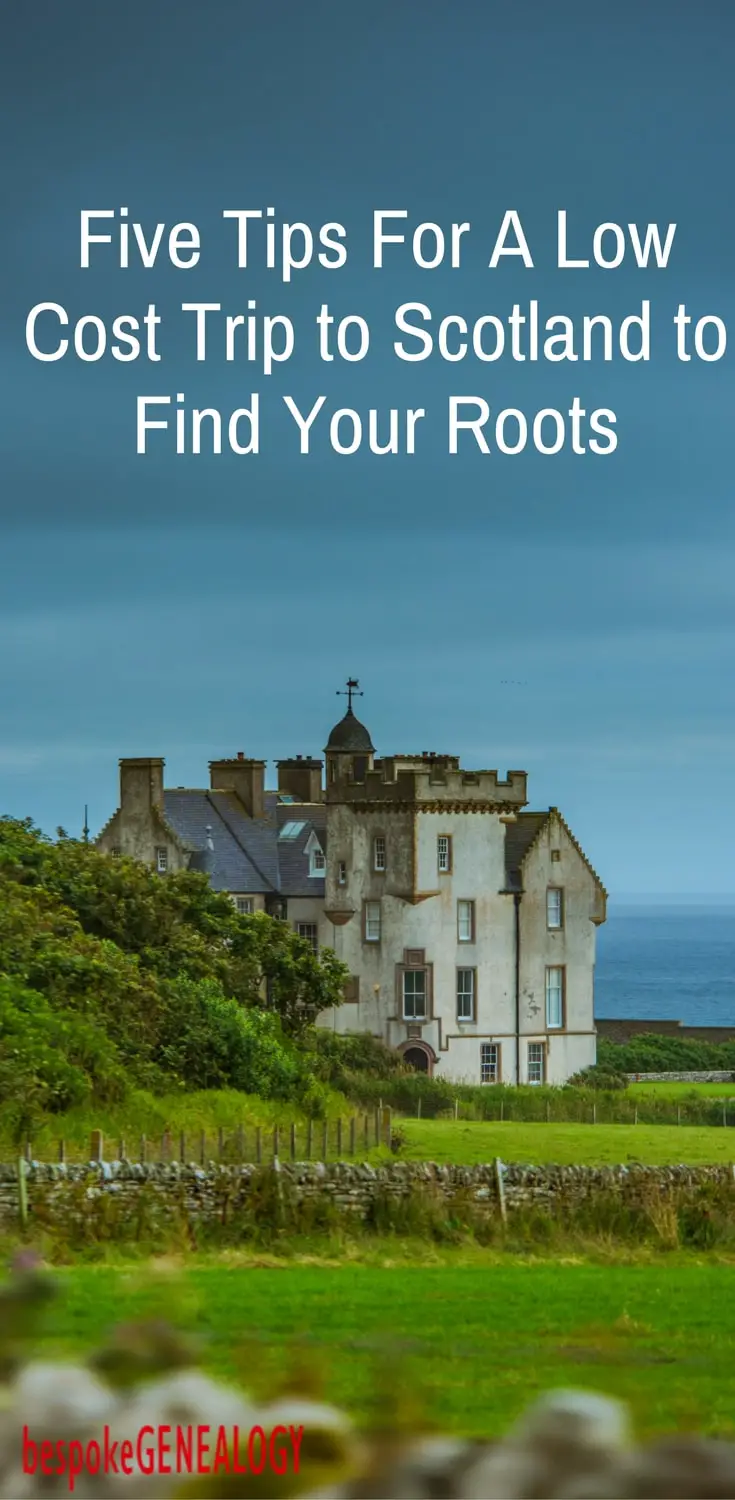



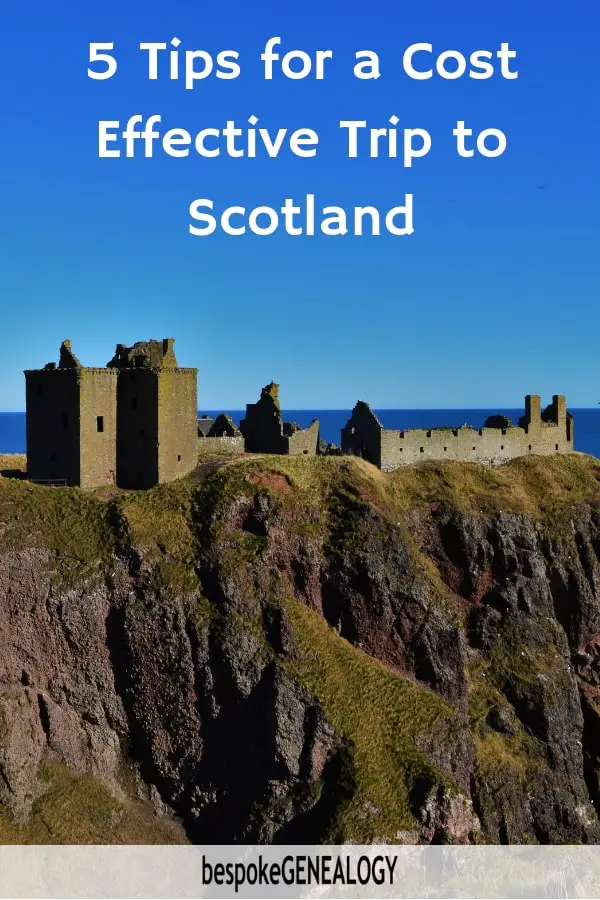
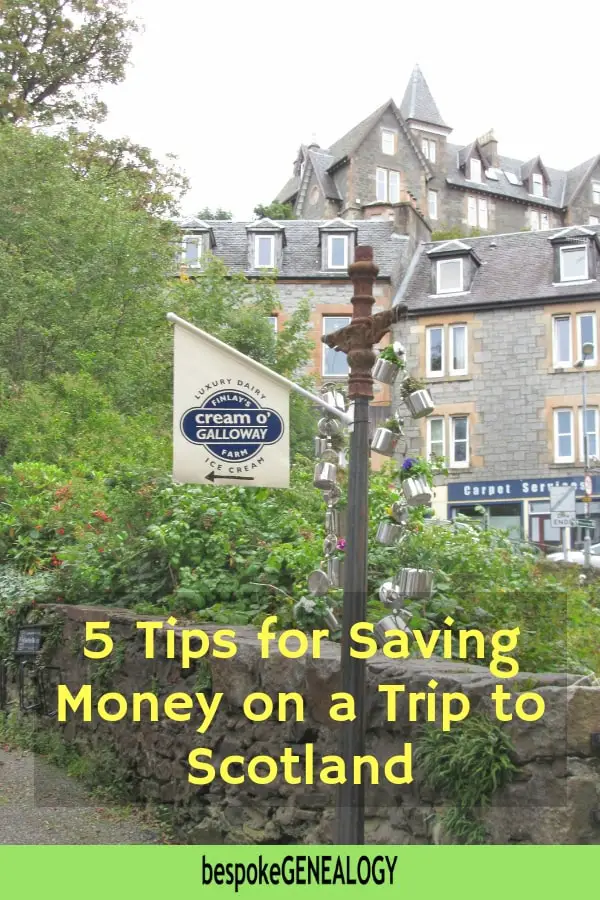

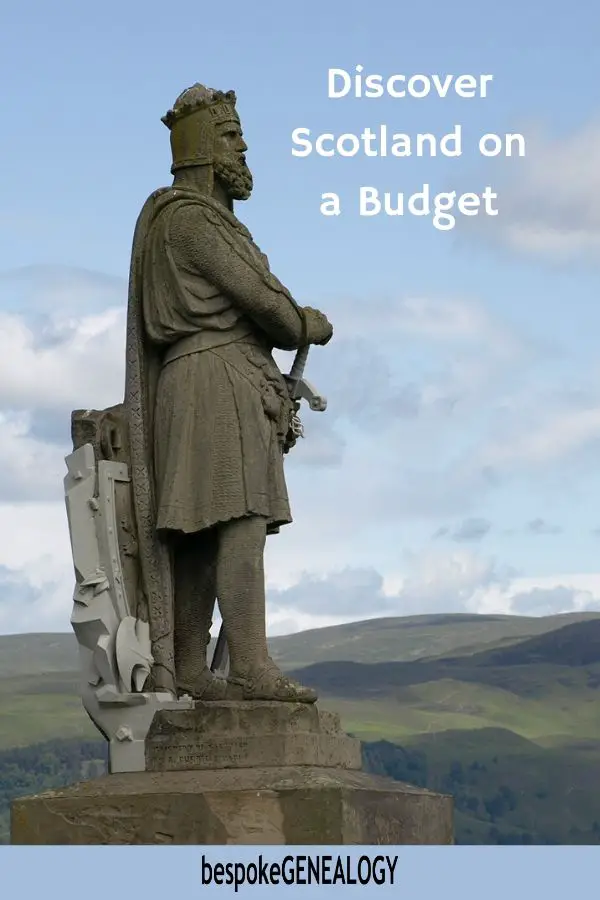

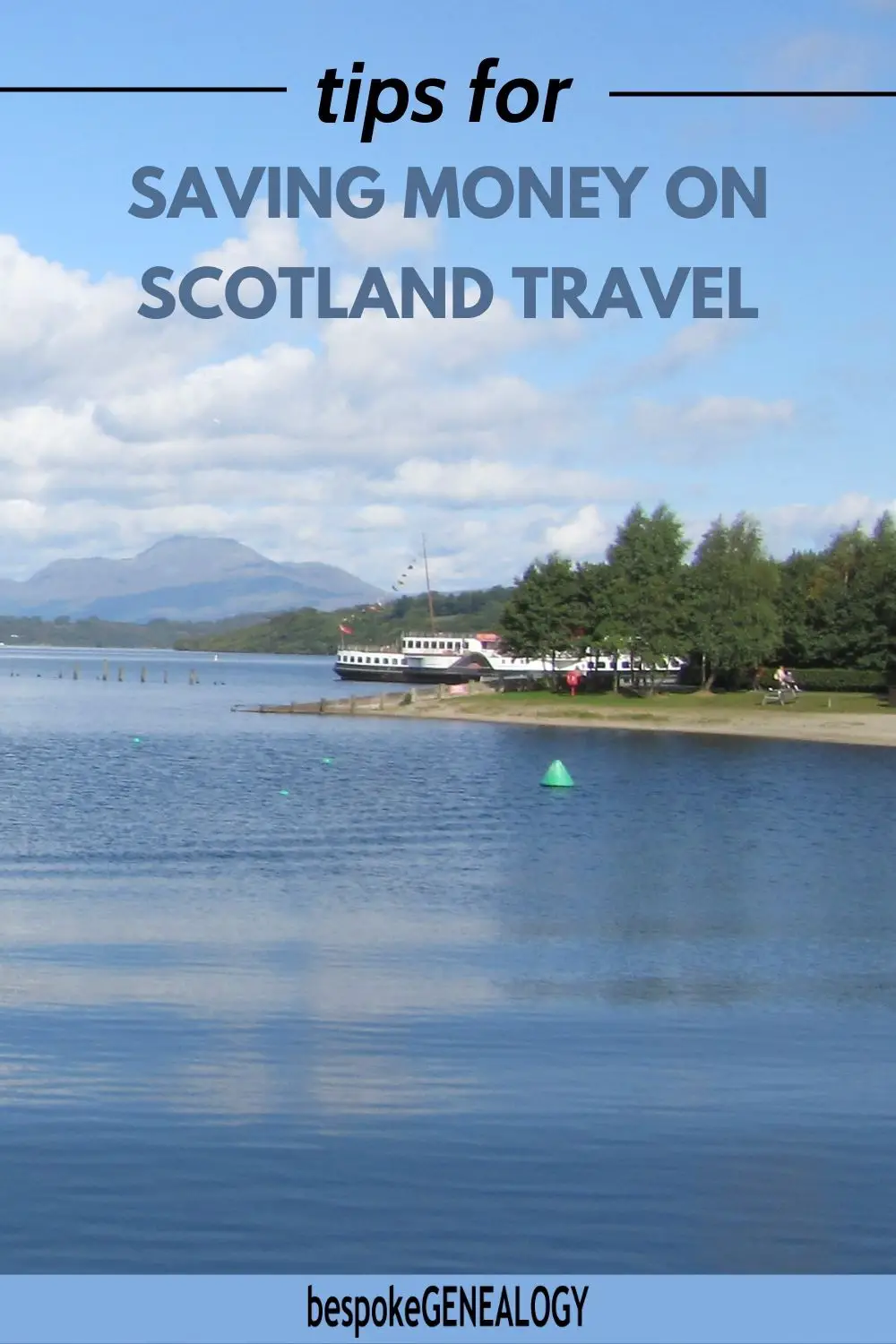

I have been tacking my ancestry based on what my father had told me as a child. He started me off with Irish as my base. After quite a bit of tracking, I find that my real roots might be Scottish. The family name is McClintock or Maclintock. Our tartan is STA 881 or STWR 881 with the registry date around 01/01/1880. Our Coat of Arms is the three shells. I believe our clad became a Sept of Colquhoun. I do know that one of our more known family member is Sir Frances
Leopold McClintock.
So where can I go to find the real truth of my origin?
Hi Edith, McClintock is a Scottish name originally. According to John Grenham https://www.johngrenham.com/findasurname.php?surname=McClintock, McClintocks arrived in Northern Ireland in the 16th century from Argyll.
As pre 19th century Irish records are almost non existent for most of the population, it will be very unlikely that you’ll be able to trace your family history back through Ireland to 16thC Scotland using records.
So, your best bet is to take a DNA test and hopefully you will be able to hook up with a branch of the family who stayed in Scotland and can trace the family back further.
Hope this helps
Alistair
Hi Alastair, zThank you for the quick response. O you know of any funded research studies that could complete the DNA test to determine my roots without the information ending up in a government database for criminals or something like that. I will check out the links and names you provided. I really appreciate the leg up on my quest.
Best Regards,
Edie
Hi Edie, for the best chance of making contact with useful cousins, you need to use a site with a large database. By far the largest is AncestryDNA. They have recently updated their privacy policy which you can find here: https://www.ancestry.com/cs/legal/privacystatement . So you can decide whether you want to proceed or not. I, myself have taken a test and am not worried about anything sinister happening to my records.
Cheers
Alistair